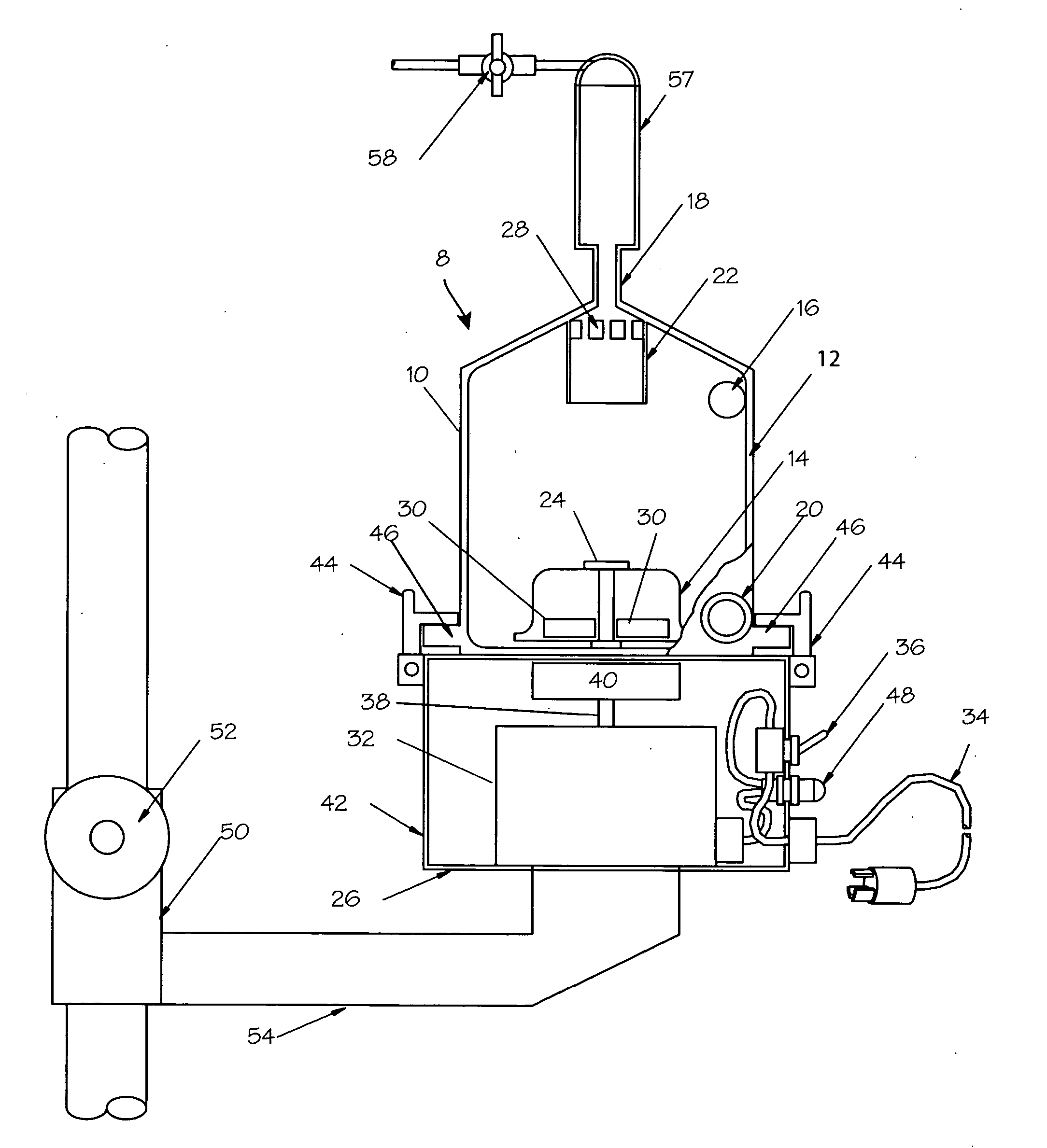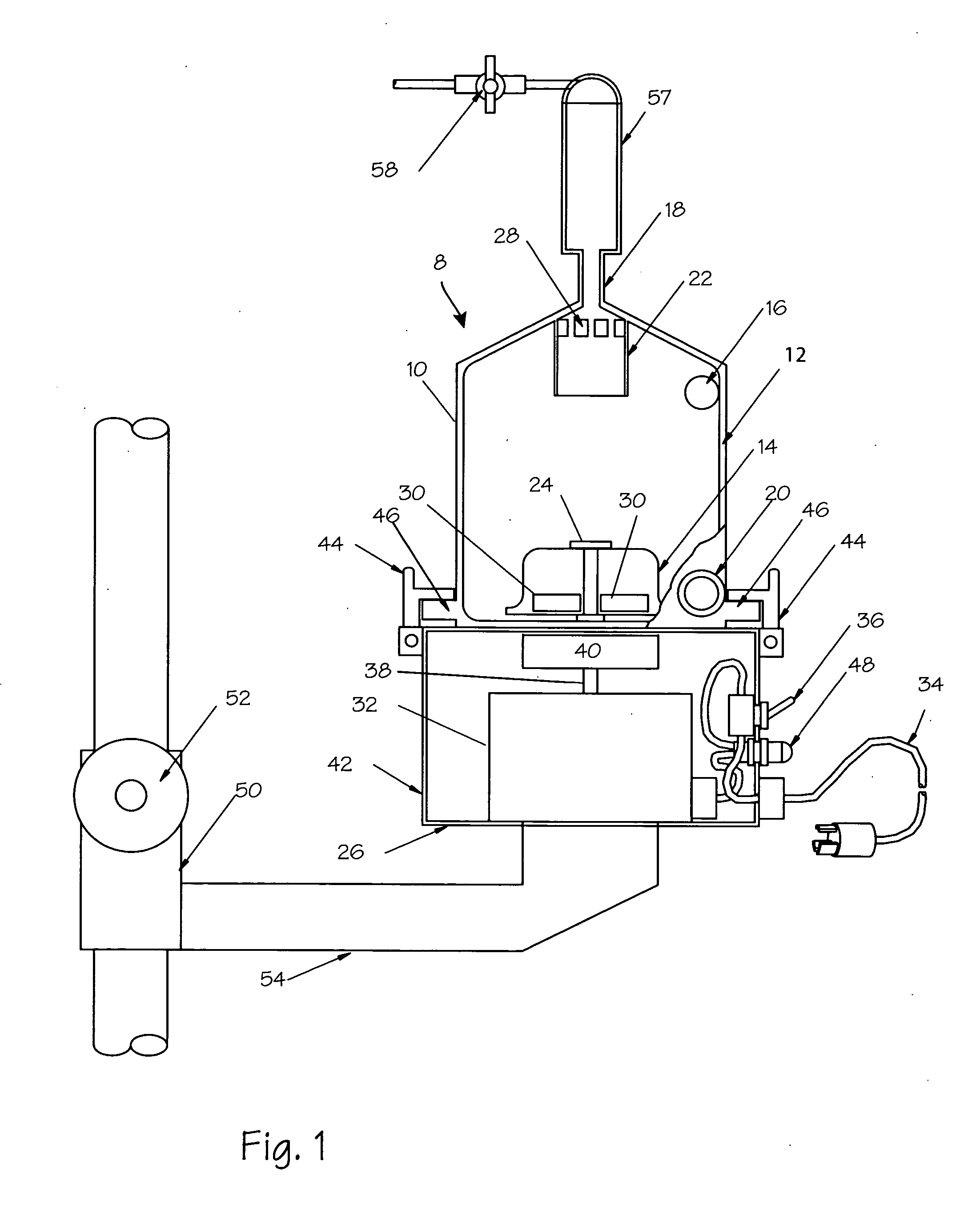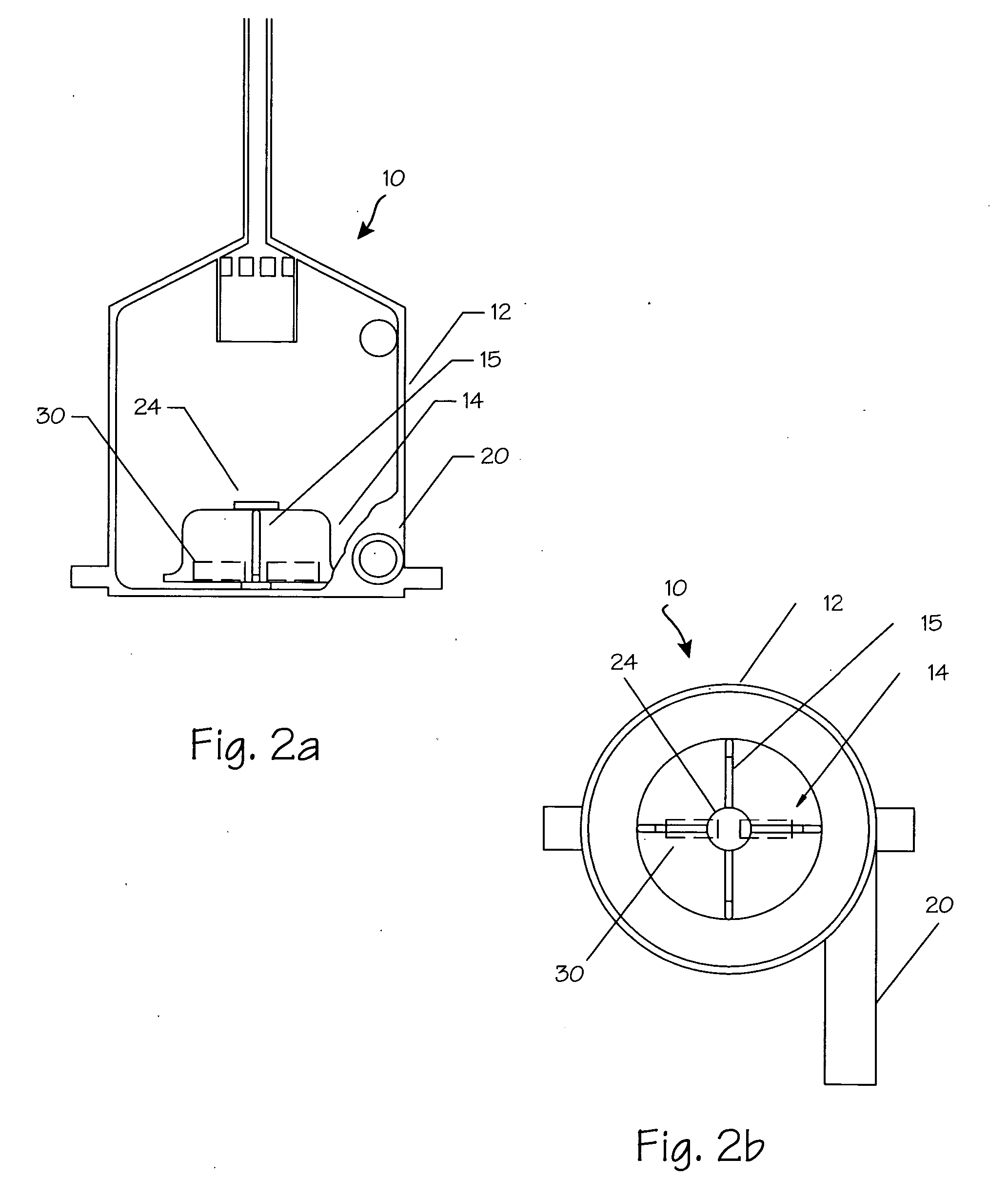Method and apparatus for removal of gas bubbles from blood
- Summary
- Abstract
- Description
- Claims
- Application Information
AI Technical Summary
Benefits of technology
Problems solved by technology
Method used
Image
Examples
Embodiment Construction
[0018]FIG. 1 illustrates a breakaway view of a blood filter assembly 8. The blood filter assembly 8 comprises a disposable blood filter 10 and a motor drive 26. The disposable blood filter 10 comprises a shell 12, an impeller 14, a blood outlet port 16, a gas outlet or central port 18, a blood inlet port 20, an optional baffle 22, and a impeller shaft 24. The optional baffle 22 optionally comprises a plurality of vent holes 28. The impeller 14 comprises a magnetic coupler 30. The shell 12 optionally comprises a plurality of lock down tabs 46, a gas trap 57 and a bleed valve 58.
[0019] The motor drive 26 comprises a motor 32, a power cable 34, a power switch 36, a central shaft 38, a magnetic driver 40, a housing 42, and a plurality of optional lockdown or clamping mechanisms 44 to hold the disposable blood filter shell 12 to the motor drive housing 42. The motor drive 26 optionally comprises a power-on lamp 48, an extension arm 54, and a pole clamp 50. The optional pole clamp 50 fur...
PUM
| Property | Measurement | Unit |
|---|---|---|
| Centrifugal force | aaaaa | aaaaa |
| Viscosity | aaaaa | aaaaa |
| Speed | aaaaa | aaaaa |
Abstract
Description
Claims
Application Information
 Login to View More
Login to View More - R&D
- Intellectual Property
- Life Sciences
- Materials
- Tech Scout
- Unparalleled Data Quality
- Higher Quality Content
- 60% Fewer Hallucinations
Browse by: Latest US Patents, China's latest patents, Technical Efficacy Thesaurus, Application Domain, Technology Topic, Popular Technical Reports.
© 2025 PatSnap. All rights reserved.Legal|Privacy policy|Modern Slavery Act Transparency Statement|Sitemap|About US| Contact US: help@patsnap.com



